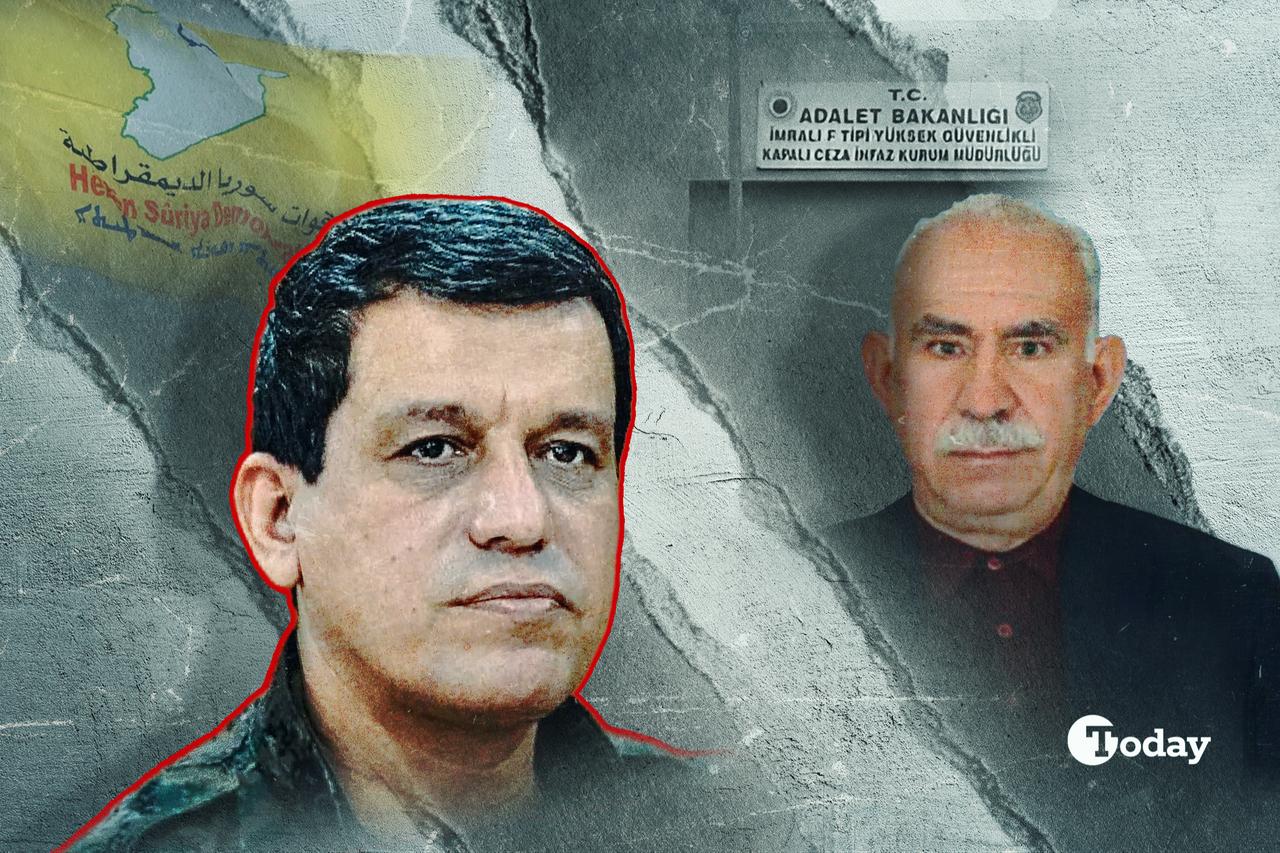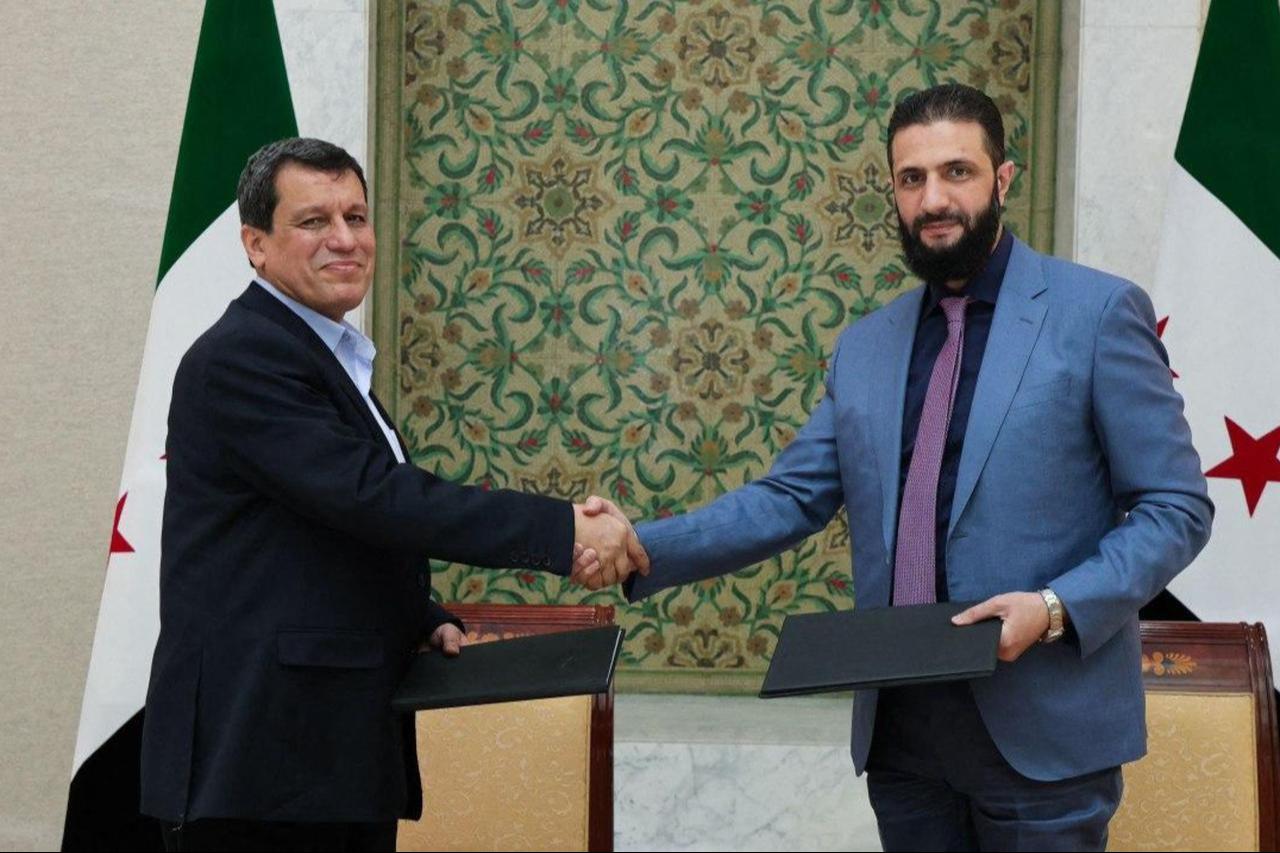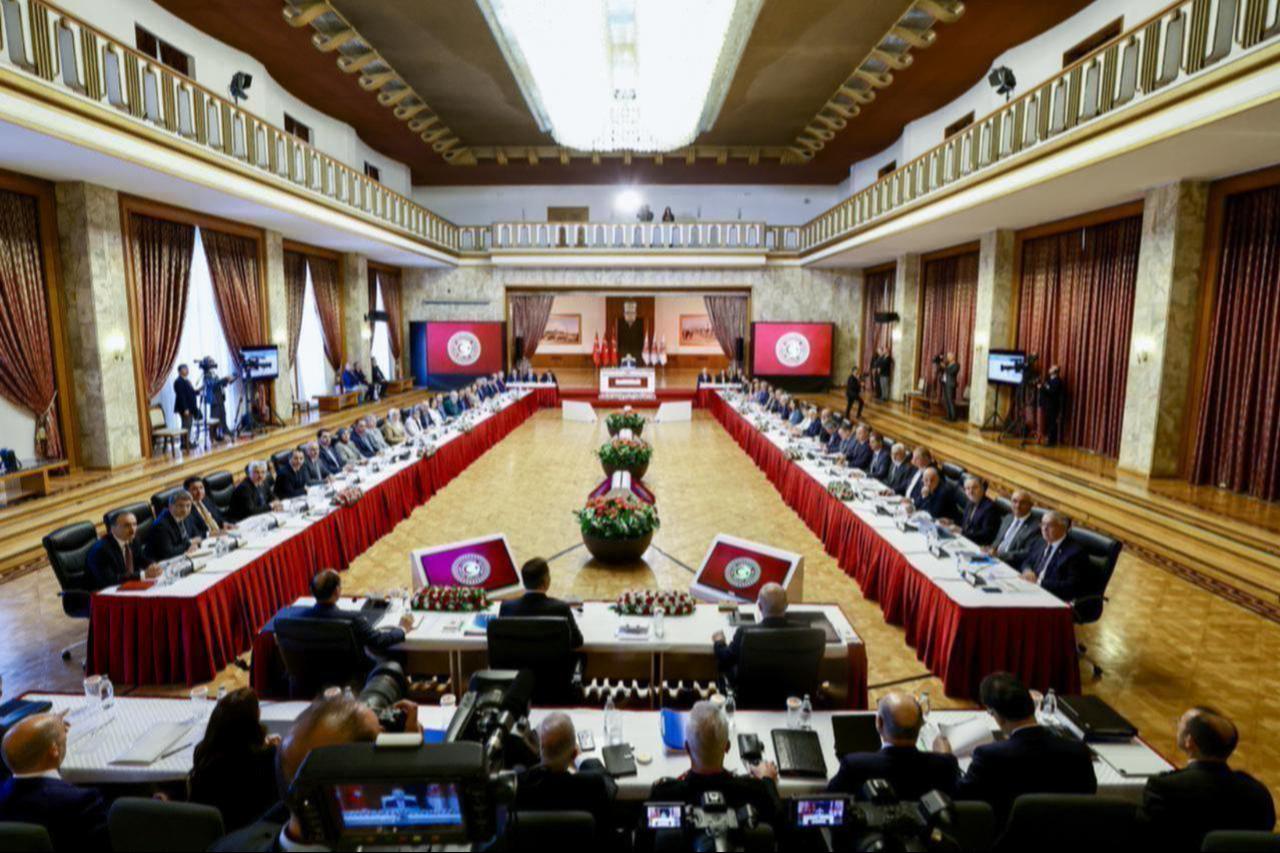
The ongoing integration negotiations between the SDF and the new Syrian government are being shaped by the "terror-free Türkiye" process initiated in Ankara that aims to end the four-decade-old tensions between the PKK terrorist group and the Turkish state.
As a parliamentary delegation comprising lawmakers from the ruling Justice and Development Party (AK Party), Nationalist Movement Party (MHP), and the pro-Kurdish Peoples' Equality and Democracy Party (DEM) heads to Imrali Island to meet with PKK head Abdullah Ocalan, diplomatic traffic on the Syrian side has also intensified.
In recent remarks, SDF leader Mazloum Abdi revealed that his organization maintains contact with Ocalan through "appropriate methods", possibly referring to letter exchange or intermediaries. Addressing Türkiye's security concerns regarding the SDF, Abdi suggested that Ocalan could play a key role in resolving issues related to PKK members in Syria.
Abdi argued that there should be talks between the SDF and Imrali to solve certain problems, adding that Ocalan himself expressed a desire to meet with the SDF leadership to act as a problem-solver.
The Syria-based terrorist group YPG's entire autonomous administration model, grand strategy, and founding principles are based on the foundations laid by ringleader Ocalan in the 1980s and 1990s.
The organization's current leader, Mazloum Abdi, is a figure who was trained and raised by Ocalan himself as well.

The developments came just a week after Türkiye appointed an ambassador to Syria for the first time in 12 years, marking a significant milestone in Türkiye’s efforts to act in full coordination with the new Syrian management in important matters after more than a decade of estrangement.
Despite this thaw, Turkish Foreign Minister Hakan Fidan reiterated Ankara's security red lines.
"The current structure of the SDF poses a threat not only to Syria's national unity but also to Türkiye's national security," Fidan said, also warning against Israel's aggressive and destabilising activities in southern Syria.
The current peace process began with a landmark speech by MHP leader Devlet Bahceli on Oct. 22, 2024. Bahceli challenged Ocalan to come to the Turkish Parliament and declare the complete end of terrorism and the dissolution of the organisation. Following this call, a DEM Party delegation visited Imrali.
Meanwhile, the political landscape in Syria shifted dramatically after the fall of the Bashar al-Assad regime on Dec. 8, 2024. The subsequent transitional government appointed Ahmad al-Shara as president on Jan. 29, kickstarting integration talks with the SDF in northern Syria.

On Feb. 27, Abdullah Ocalan shared a video message from prison calling on the PKK to lay down arms and dissolve itself. While the PKK announced the cessation of armed activities within Türkiye following this call, a debate erupted over whether the instruction applied to the SDF in Syria.
DEM Party Chairman Tuncer Bakirhan argued that the call did not cover the SDF, whereas MHP leader Bahceli insisted that the SDF must also comply with Ocalan's directive.
On March 10, SDF leader Abdi and Syrian President Sharaa signed an eight-point memorandum covering ceasefire and integration. While the SDF is slated to join the Syrian army, it has not yet laid down arms in its region as negotiations on the mechanics of integration continue.